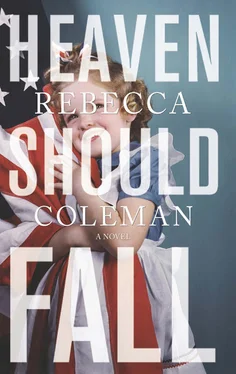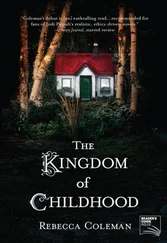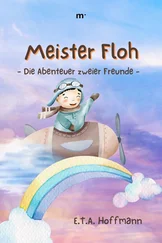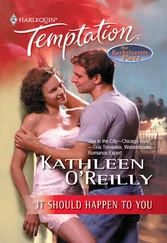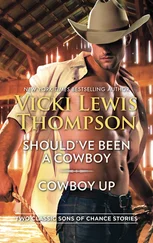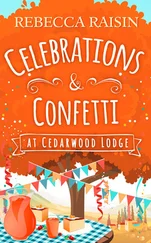9. Elias suffers from PTSD, a condition that affects as many as one-quarter of soldiers returning from the wars in Iraq and Afghanistan. What do you think can be done to reach soldiers who struggle to readjust, or who need help but are reluctant to seek it?
10. Cade professes to deeply love his son, his wife and his brother, yet throughout the story he commits acts that violate their trust and risk their safety. Do you believe he truly loves them and is limited by his human flaws, or that he doesn’t fully grasp the meaning of love and loyalty in the first place?
11. How did you feel about Jill’s actions toward the end of the story? Did you feel she was doing the best she could with what she had, or that she was too complicit in her own problems in the end? Were you satisfied with the way the story was resolved?
Excerpt from The Kingdom of Childhood

If you loved Heaven Should Fall, don’t miss Rebecca Coleman’s captivating debut novel, The Kingdom of Childhood. Available now.

“Coleman’s debut novel is a disturbing yet enthralling read. Recommended for fans of Jodi Picoult’s realistic, ethics-driven novels, as well as book clubs looking for interesting debate.”
— Library Journal, starred review, on The Kingdom of Childhood
Connect with us for info on our new releases, access to exclusive offers, free online reads and much more!
Subscribe to our newsletters: Harlequin.com/newsletters
Visit Harlequin.com
We like you—why not like us on Facebook: Facebook.com/HarlequinBooks
Follow us on Twitter: Twitter.com/HarlequinBooks
Read our blog for all the latest news on our authors and books: HarlequinBlog.com
THE KINGDOM OF CHILDHOOD
by Rebecca Coleman
1998
Sylvania, Maryland
I suppose in the beginning it was a love story. The school into which I had wandered, following my midwife’s directions to sign up for a natural-childbirth class held there in the evenings, was a fairy-tale cottage of apricot walls and cabinetry built from knotty pine. In the kindergarten room, knitted dolls waited in a line beneath a large bright window; wooden fish, painted in pale washes of color, leaped from a swirl of blue silk arranged on a shelf. At the center of it all sat a lantern, nestled among the seashells and pine cones strewn on a small table. Its blue overlay was decorated with the silhouette of a young girl with her skirt held out, catching in it the stars that fell like coins from the sky. I knew it was a scene from a fairy tale, one I had heard many years before on the other side of the ocean. I remembered many stories from that place and that time, but this one was notable in that it ended in happiness and not horror.
The teacher who found me standing loose-jawed in her room, one hand on my burgeoning belly and the other on my hip, did not need to ask me if I had ever been in a Waldorf school before. The answer was obvious enough from my gaze of uninhibited wonder, and as I was soon to learn, every aspect of the Waldorf life is meant to inspire that feeling which rose in me very naturally, as though I were a tired pioneer stumbling into a lush valley and suddenly declaring, “This is the place.” I didn’t question why that room pulled at me so intensely, because as soon as I walked in, I knew: it reminded me of the school I had attended as a child in Germany, with shiny leaves of ivy hanging like garlands above the windows, a guitar beside the teacher’s desk, and the tables outfitted with wooden boxes of beeswax crayons in colors so hard and bright that they carried an elemental cheer. The boxes contained many colors, but not black. Black was not allowed. I received this information like a coded phrase: here we have your German childhood, and we have removed the black crayon.
Now, nineteen years later, I had shepherded hundreds of kindergartners through their introduction to our brand of wonder, watercolors and the occasional case of ringworm. The baby traveling upside-down in my womb that day, blissfully ignorant of her mother’s budding fanaticism—my daughter Maggie—had attended Waldorf clear through to college. Scott, my son, was in his final year of high school, and he was finishing up not a moment too soon. The school year had only just begun, and already my boss, Dan Beckett, had opened our Monday-morning staff meeting with an announcement that Sylvania Waldorf School was financially insolvent and might go under at any moment. This was a regular weekly feature during the previous year, and so that morning I sat at a student desk listening to him in respectful silence, toying with my earring and musing idly on the erotic dream I’d had about him the night before. My love affair with Waldorf was still alive in my soul, but until the new boss arrived it had never occurred to me that it might be consummated.
If I was distracted that day, a reasonable person could hardly blame me. By lunchtime I had dealt with two potty accidents and one black eye on a scrappy student who, quite honestly, had it coming. In the afternoon I sent home a child showing symptoms of measles to two panicky parents suddenly reconsidering their commitment to holistic medicine. Now, at long last, my mug of coffee and I made our way down the covered walkway that connected the Upper and Lower Schools. My son Scott’s choir practice was almost over, and with that I would finally be able to go home and crawl into bed under a pile of duvets. Hopefully the oxygen deprivation would knock me out quickly.
Rounding the corner to the multipurpose room, I felt a bit more relaxed just to hear the beatific voices of my son and his choirmates. The madrigal choir was by invitation only, and sang, for the most part, medieval and Renaissance songs a capella. Scott, a senior, had a fine voice but no particular love of music. He stayed in Madrigals because the school required an extracurricular and he found the other options, in a word, “lame.”
As I slipped in the back door I spotted the small group clustered on the risers at one side of the stage. Drawing closer, I could pick out Scott’s voice in the baritone section. They sang The Holly and the Ivy in preparation, I assumed, for the Advent Spiral ceremony around the holidays. They were certainly getting an early start.
I sat in a folding chair and sipped my coffee. As their teacher issued a few parting instructions and the group dispersed, Scott meandered toward me with two other young men in tow: Temple, the quiet boy with whom he had been friends since first grade, and another one I did not recognize. Hitchhikers, I predicted.
“Hey, Mom,” Scott said. “Do you mind giving a couple people a ride home?”
The trio lagged behind me on the way out to the parking lot, with one of them—the extra one, from his voice—singing a potty-mouthed parody of The Holly and the Ivy to the delight of his friends. By the time they piled into the back of the Volvo, the conversation had reverted to the two-syllable monotone of teenage boys.
“Who lives closest?” I asked, turning out of the parking lot.
“I do,” said the crude one. “Left on Crescent, right on Lakeside, follow it down.”
I turned up the radio and tried to think ahead to my evening, rather than backward to the terrible day, without much success. Three of my students, now, were out with the measles, with a fourth case likely in the works. At any other school this would be a cause for alarm, but many of the parents in our school community had reservations about immunizing their children, and as a result we had periodic outbreaks of arcane diseases. Although the teachings of Rudolf Steiner, the originator of our school’s philosophy, supported some of these ideas, I did not share their view. I had thought myself a rebel to society at large when I joined the Waldorf School movement, yet once inside the community I chafed just as often, but kept my dissents secret. I vaccinated my children, circumcised my son. I owned not one but two televisions. I ate plastic-wrapped American cheese.
Читать дальше
